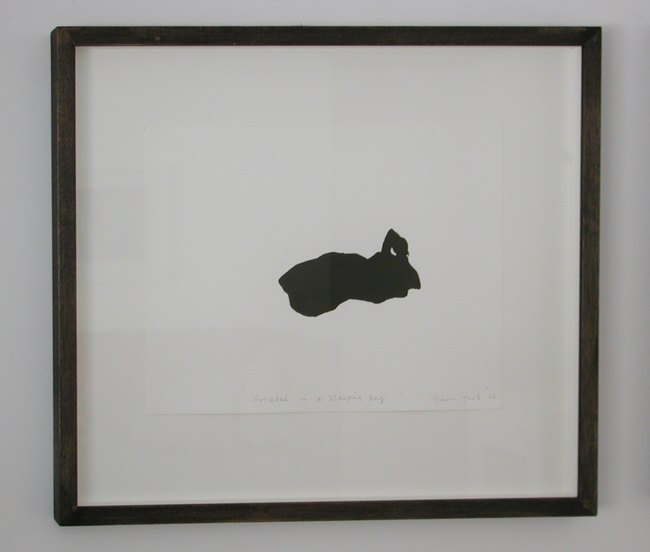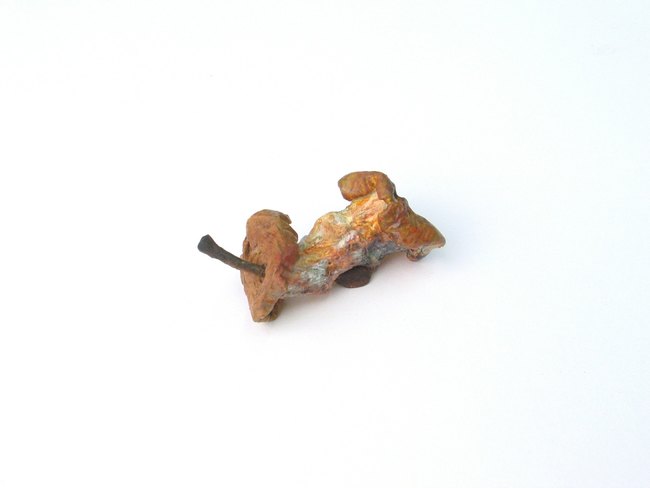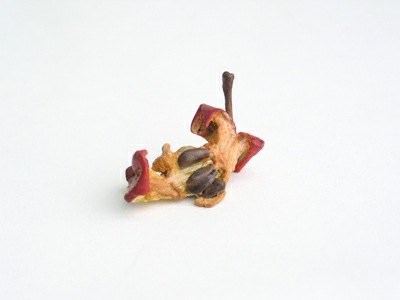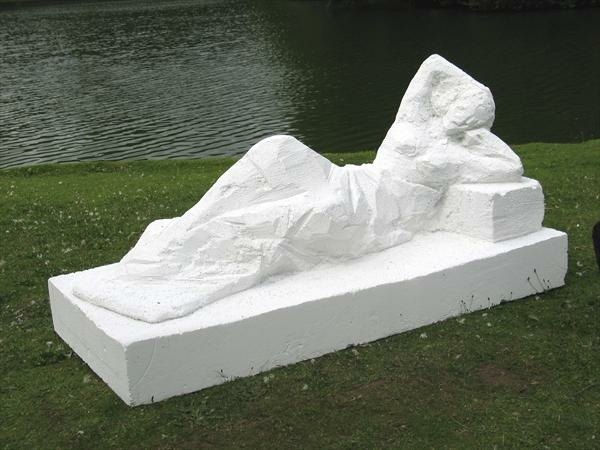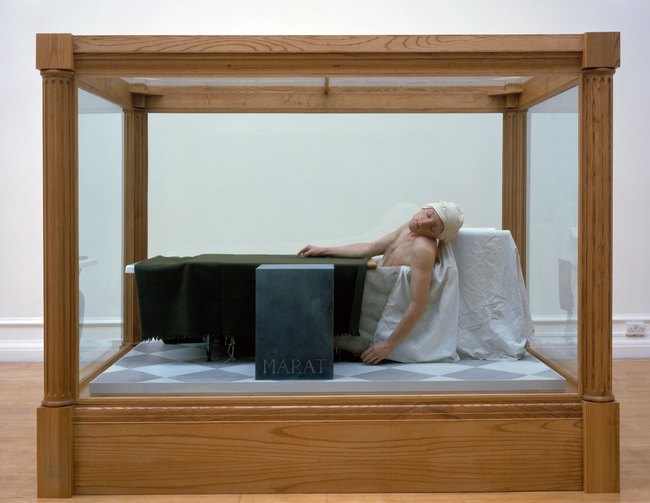AboutEssays2000The Outsider
On the whole, outsiders don’t seem to survive that well. Take the revolutionaries for example: poor old Prometheus was bound to a rock for eternity, Lucifer was consigned to hell, Oedipus gouged out his own eyes with a brooch pin, Jesus was crucified, John the Baptist decapitated, Che Guevara assassinated, Marat too, Bobby Sands starved himself dead, Socrates got to drink hemlock, Travis Bickle executed a massacre and God knows what happened to Hitler, but it can’t have been good. Then there are the half-mad visionaries - the likes of Van Gogh, Sylvia Plath, Sid Vicious, Virginia Woolf, Kurt Cobain, Ian Curtis et al - those brooding souls whose depressive talent sets them so apart from the community they could only die of loneliness. And then there are the reviled, the drop-outs, the misfits, the junkies, the street urchins, the bums, who for some reason or other just can’t swim in the main stream. Ad infinitum. Find yourself an outsider, someone who lives on the periphery of social norms, and more often than not, some kind of grisly extinction follows.
There’s something about being outside of the inside that’s unsustainable, impossible, that just cannot survive. The cult of the extreme individual makes for a sticky end. The community needs these raging individuals to drive it forwards, it needs outsiders to push through evolution, it even creates outsiders – but it doesn’t ultimately allow them to survive. Outsiders serve their function in various extremes; they satisfy the community’s vampiric hunger for saints and martyrs, then it’s goodbye Charlie and curtains all round. Chewed up, spat out. They have to be sacrificed.
This relationship between the outsider and the community, or the outsider and the ‘insiders’, has a strange alchemy to it that seems at one moment graspable, yet at another vague and mercurial. The relationship is symbiotic, co-dependent, each defining the other – the outsider exists only in relation to the ‘insider’, like black and white, light and dark, knowledge and Eden, good and bad. But exactly how and why the outsider and the insider operate, how they fit together, what this alchemy is – is a quandary.
Long ago, in small communities, in the days before outsiders were ostensible, there were goats instead. Scapegoats. Upon these goats depended the well-being of the community. Once a year, the people would daub the goat with symbols of all the ills of the community and then they would banish it. With it, this painted goat would take away the projected sins of the people, thereby restoring order and calm. The scapegoat, or rather the sacrifice of the scapegoat, would purge the community’s defilement, cleanse it, unify it, make it whole again.
Later on, the Greeks incorporated this idea of a scapegoat into human form. If ever there were a plague on the land, it was perceived as pollution that needed cleansing. Rather than exiling a goat, however, they would exile (and early on sacrifice) a pharmakos - a cripple, slave or criminal – who would perform the same purifying function. The pharmakos was remedial – behind this ritual was the shutting out of badness from the city in the way a modern day remedy shuts out badness from the body. The pharmakos was led outside of the city and sacrificed,in order to purify the city's interior. It’s interesting to note that both the ‘pharmakos’ and the scapegoat came from the inside in before they were taken outside. Created by the interior of the city, both were made outsiders by its “insiders” thus the outsider is both the ritual embodiment of all that is wrong with the community, while also being the means of healing it. He is both sacred and profane, remedy and poison.
Later still, this ritual became civilised and formalized on the Greek stage with the birth of tragedy - the very domain of fictional outsiders. It is no surprise that Dionysus was the god of the tragic stage, the deity who even on Olympus embodied the ‘other’ and the one who set up communion between things hitherto isolated, separate. Indeed, the literal meaning of tragedy is ‘the song of the he-goat’, which further underlies the connection between the social function of that and the earlier scapegoat. In fact, you might argue they are one and the same, not least since watching tragedy in its native context had the same effect as the banishing of that painted goat and the pharmakos; the effect of catharsis. Catharsis, coined by Aristotle in his “Poetics”, was a purification that happened for the audience of a tragic stage through the experience of watching the play. The emotions evoked by the tragedy: ‘pity for undeserved suffering, and fear for the man like yourself’ are the tenets of this purging, cleansing experience.
How exactly this catharsis happens is a mystery, but inexactly speaking, it’s something to do with our watching the fictional outsider up on stage meeting his doom. We watch the extra-ordinary tragic heroes of Prometheus, Oedipus, Pentheus, Antigone, Achilles and all the other miserables taking their stand outside the norm of the city, becoming ‘other’ through a profoundly extreme and often noble character flaw that they are unable to abate. The chorus stand by and watch, reporting events, passive, observant. And when the tragic hero is undone, the chorus lament and say they told him so and then are able to return to their ordinary lives. The value of these ordinary lives, now reinforced and vindicated.
There’s something deep in the idea that this highly sophisticated (and then very socio-political community based) theatre could perform a function similar to that of the scapegoat. And maybe there is a clue here to the function of the ‘outsider’ today. Onto him we project our ills, our hopes, our fears. He acts them out. He is a living archetype. He lives out extra-ordinariness, excellence, loneliness, exclusion, rebellion, anarchy, going against the grain. He is punished for it, or sacrificed to it. He is exiled. Banished. Rejected. And as such he is given responsibility for the collective salvation of the group.
Extraordinariness is perhaps a defining feature of the outsider. As history relates, ‘outsiders’ seem to be extra-ordinary either as exceptionally talented human beings, or as sub-human Hogarthian quasi-monsters like the pharmakos, the junkies covered in lesions and the beggars on the street. In terms of the talented, the community ultimately won’t tolerate them: as Solon observed ‘a city perishes from its too great men’. They have to be culled. The community seems to have a mixture of envy and distrust for anyone who is too gifted or successful. As if someone’s exaggerated good luck or excellence might call down the wrath of god on the town. Aristotle noted that if a man oversteps the common level of virtue, he cannot be accepted on equal footing with the rest of the citizens – which is why the democratic state introduces the policy of ostracism. In terms of the wretched, the community pushes them out for fear of contagion. We cross to the other side of the street; we don’t want to be infected or sullied. Displaying an animal mentality, we exclude the diseased among us, in order to protect the survival of the group.
The men and the women who perform the function of the outsider for society are living out something that is buried deep in all of us. They are doing an important and painful job for the community. They are both sacrificing themselves and being sacrificed. The outsider’s destruction reinforces to the mainstream that it’s just not possible to live out that part of ourselves - the part that is a-social, anarchic, monstrous, divine. The outsider’s destruction allows us to commune with the part of ourselves that is isolated, separate, outside – but safely. We, like the chorus of old, purge the outsider inside of us by ritually observing their downfall so that we can return gratefully indoors to the ironing and the soaps on TV. For it’s cold outside. Maybe we should give more thanks to all those oddballs who are on the outside, for whether they know it or not, whether they want to or not, they realign the natural balance of our lives, and restore the ever so fragile eco-system of our community… they allow us our normality.

